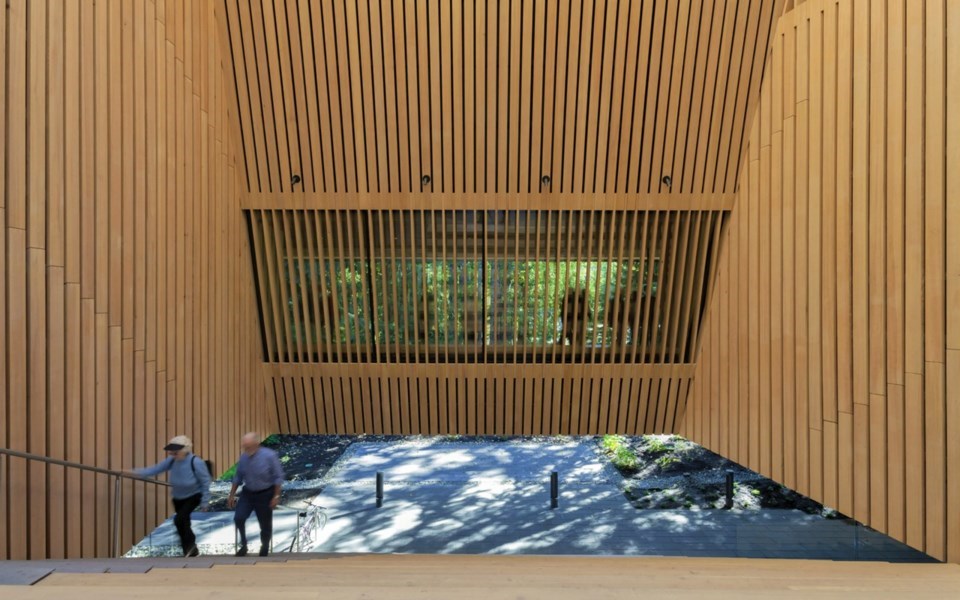Mayor and council passed the Resort Municipality of Whistler’s (RMOW) first-ever permissive tax exemption policy this week, laying out a framework for local non-profit organizations that provide benefit to the community to be considered for a property tax exemption.
Following the example of other B.C. municipalities with permissive tax exemption (PTE) policies in place, municipal financial planner Ashley Palmer explained at a Sept. 12 council meeting that the new guidelines and associated application process for non-profits are intended to “introduce an added level of transparency, accountability and equity” around the granting of PTEs.
Guided by B.C.’s Community Charter, the RMOW already grants PTEs to eligible non-profit organizations that “contribute to the well-being of the community with the provision of cultural, social, educational or recreational services.” With the new application process slated for implementation early next year, RMOW staff decided to hold off on any substantive changes to the list of proposed PTE recipients for 2024, which includes the Squamish Lil’wat Cultural Centre, the Whistler Community Church, Whistler Community Services Society, Whistler Sport Legacies, and Zero Ceiling.
The estimated value of all the PTEs approved in 2023 is $531,000, a total municipal planners expect to rise next year with “likely increases” in assessed property values from BC Assessment, Palmer noted.
“PTEs are intertwined with the RMOW’s financial plan, because the total cost of property tax revenue foregone from exempt properties… is effectively reallocated to other residential and commercial property owners to foot that bill. Otherwise, without that tax revenue, we would be looking at reducing municipal services that we can offer. So, council, in deciding which organizations receive a PTE, in effect are acting to direct a significant amount of community dollars to selected non-profit organizations,” Palmer said.
What remains to be seen is whether three affected local properties with individuals living onsite—the Audain Art Museum, Our Lady of the Mountains Catholic Church, and the Whistler Mountain Ski Club—will have to pay residential property taxes for those live-in suites, which the RMOW said would likely amount to between $500 and $1,400 a year, depending on the property.
“Staff are looking forward to learning more about the rental arrangements of these residences as part of the PTE application next year. The general best practice in B.C. is to not award tax exemptions to a residence or residential portion of a building that receives a tax, and the rationale behind that approach is that all residents should pay a fair and equitable share of property taxes since community amenities and municipal services are available to all residents,” Palmer explained.
Councillor Ralph Forsyth, the only official to vote against the PTE policy, questioned why the RMOW should tax exempt non-profits for providing staff housing to their employees, a long-stated goal of the municipality, and one of current council’s four core priorities for the term.
“This jeopardizes one of our top priorities, which is housing,” Forsyth said at the Sept. 12 meeting, adding that a new PTE policy isn’t necessary when B.C.’s Community Charter already provides guidance to local governments. “It’s a solution in search of a problem. I just hope you consider the community before you consider the policy.”
Speaking during the public question and comment portion of the Sept. 12 council meeting, philanthropist and Our Lady of the Mountains Church member Andy Szocs, who donated $2 million for the church’s planned $4.5-million expansion, said any additional cost would hinder the church’s trajectory.
“We’re operating, basically, at a break-even point, and anything that would disturb that would create a big problem for our future,” he said.
Stan Kranjc, board member for the Whistler Mountain Ski Club, welcomed the support the RMOW has given to the club over the years, but questioned the value of a policy that could foist more taxes on local non-profits.
“It’s not cost-prohibitive. We’ve been here for 52 years and will be here for hopefully another 52. We run efficiently, but it is death by a thousand cuts,” he said. “It gets back to increased inefficiency. There’s no intrinsic value created by this policy, It’s more paperwork, for both sides.”
In an emailed statement, Curtis Collins, the Audain’s director and chief curator, said the museum was “pleased” the residential component originally included in the draft policy had been removed. The Audain “understands such an approach, as these residences and individuals use services and amenities in Whistler and property tax has been a concern for all citizens over the past number of years,” he said.




